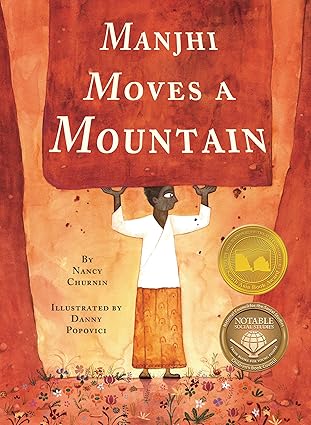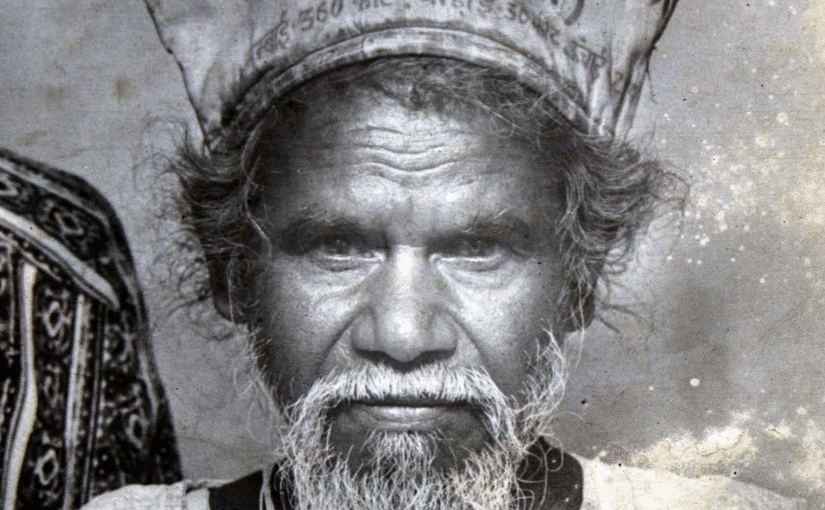In the heart of Bihar’s rugged terrain, where the earth breathes stories of toil and persistence, a lone figure emerges from the dust and rocks—a man whose life transcended the ordinary, whose defiance forged a path through what was deemed impossible. His name is Dasharath Manjhi, but history will remember him as the “Mountain Man”—a symbol of indomitable spirit, a testament to what one individual’s grit can accomplish against the harshest odds.
Gehlaur village was nestled amidst hills that loomed like silent giants, casting long shadows over the lives of its inhabitants. The air was thick with the scent of earth and sweat; life was simple but relentless. Born in 1934 into a family of farmers, Dasharath’s childhood was marked by the same hardships that shaped countless others in this remote pocket of India. Each dawn, he rose with the sun, tending fields, dreaming of rest and relief, yet knowing that beyond the endless toil beckoned a barrier that seemed insurmountable—the mountain.
“The mountain was like a giant wall, blocking everything,” Dasharath would later say, his voice gravelly yet resolute. “It separated us from help, from hope. We felt chained by it.”
His was a life molded by struggle, but beneath that rugged exterior simmered a quiet resolve—an ember that refused to die out. He knew the mountain’s contours intimately—every jagged edge, every crevice carved by the wind. It was not merely stone and dirt; it was a symbol of their suffering, a barricade that threatened to forever keep the villagers captive.
In 1960, that wall became painfully personal. Dasharath’s wife, Phaguniya Devi, fell ill. She was weak, her breath shallow, desperation gnawing at Dasharath’s heart. The villagers tried to reach the nearest hospital—a journey that should have taken a few hours—yet the mountain’s shadows rendered that distance a treacherous odyssey.
“I remember holding her hand as she gasped for every breath,” Dasharath recounted years later, a flicker of pain flashing in his eyes. “We tried every route—through the forest, around the rocks. But the mountain stretched like a fortress, refusing to yield.”
They set out with a cart, but the narrow, winding paths were treacherous. Days turned into weeks. The villagers watched helplessly as Phaguniya’s condition worsened. Ultimately, she succumbed, her passing leaving a void deeper than words could capture.
“By losing her,” Dasharath whispered, “I realized something—this mountain is more than just rock and dirt. It’s an obstacle that costs lives.”
That moment ignited a fire within him—a resolve that refused to be smothered by despair.
For months, Dasharath tried to rally the authorities. He petitioned, pleaded, and narrated his story to anyone who would listen. But bureaucratic apathy and the mountain’s indifference turned his hopes into ashes. Frustration gripped him like a vice.
“You think money can move these mountains?” he spat one day when asked about government plans. “You think words will carve a path?”
When all pleas proved futile, an unwavering thought settled within him: if the world would not help, then he would help himself. “My love for my wife, for my people—that was my only weapon,” he later said. “If no one else would do it, I would do it alone.”
So, armed with nothing more than his bare hands, a chisel, and an iron axe, Dasharath left behind his fields and wandered into the rocky wilderness. Daybreak became his starting bell; twilight, his retreat. Each day, he chipped away at the mountain’s surface, relentless as a storm battering the cliffs.
Neighbors scoffed. “You’re wasting your life,” they warned. “It’s foolish to challenge the mountain alone.” Some whispered that he had lost his mind—an old man fighting a natural fortress.
But Dasharath heard none of it.
He would smile softly and say, “What’s lost is only what we give up on.”
His labor was slow and painful. The rocks bit into his skin, shards of stone sliced his palms. His muscles ached with the weight of exhaustion. Yet every morning, he returned, fuelled by a singular purpose—to carve a passage for his wife, for his village, for himself.
He often paused to reflect, clutching his battered tools. “Every strike I make,” he would say, “is a prayer to my wife, a promise made to her that nobody suffers her fate.”
His perseverance was almost poetic in its simplicity. Years would pass, then decades, and with each passing day, the mountain’s scars grew deeper—yet so did the legend of one man’s unyielding resolve.
Neighbors continued to watch, skeptics and believers alike. Some shook their heads, others whispered, “He’s mad,” or “It’s never going to happen.” But Dasharath paid them no mind. His focus was singular: to transform tragedy into triumph, despair into hope.
His wife’s face haunted his dreams, and he often saw her in the silent, rocky labyrinth he was carving. “Every stone I break,” Dasharath said, rubbing his rough palms, “is a step closer to her, a step away from the death that the mountain had caused.”
The journey was not only arduous but lonely. No machinery, no official support—just a man and his tools. The rocky terrain seemed almost alive in its resistance, as if mocking his stubborn resolve. Many nights, he would sit by the roadside, battered and exhausted, staring at the craggy face of the mountain, contemplating whether his effort was in vain.
Once, after a brutal day’s work, a neighbor approached him, incredulous. “Dasharath, you’ve been doing this for years. Why? What’s the point? The government won’t help. People think you’re crazy.”
Dasharath looked up, his eyes piercing through his rough beard. “Sometimes, all it takes is one person’s courage to change destiny.”
The years dragged on; the rocky mountain remained stubborn, whispering tales of eternity. Dasharath’s hands bore the scars of countless battles with stone, the once-strong muscles now sinewy and encrusted with dirt and sweat.
People began to notice the quiet persistence. Children, curious about the old man, would watch him work at dawn, awestruck by his unwavering commitment. Lingering doubts persisted—what can one man possibly do against such a colossal obstacle? Still, Dasharath kept going.
Then, a day arrived that felt almost destined—August 3, 1982. After 22 years of relentless labor, he finally pushed through a narrow cleft he had carved, revealing blue sky beyond the rocky façade. The crowd that had gathered from nearby villages and local officials looked on in disbelief and awe.
He had done it. He had broken the mountain.
“The moment I saw the opening,” Dasharath would later recall, voice thick with emotion, “I knew I was no longer fighting the mountain—I was fighting despair, hopelessness, and death. That opening isn’t just a passage; it’s a symbol of human will.”
The path was rough and jagged—barely acceptable as a road—yet it was a lifeline. The journey from their village to Gaya, which once took days, was now completed within hours. The sick could be rushed to hospitals; children could attend school; villagers could breathe freedom.
News of Dasharath’s feat transcended the rocky hills of Gehlaur. Stories of a man who had single-handedly challenged the might of nature captured the imagination of the nation. Newspapers chronicled his story, and in villages and towns across India, people saw a reflection of their own hidden strengths—the whispered hope that even the smallest among us can challenge giants.
Yet, Dasharath remained humble. When asked how he felt standing at the foot of his creation, he smiled wistfully and said, “All I wanted was for my wife to see the world beyond this mountain. I did it for her, for my children, for every person trapped behind walls of stone and despair. If I could do it, so can anyone.”
He often told visitors, “You don’t need machines or money. You need the courage to start, the patience to endure, and the love to fight.”
Dasharath’s life after that moment was marked not only by recognition but by a continued sense of duty. He became an inspiring figure for countless rural communities—proof that human resolve can surmount even the greatest natural barriers.
He received honors from the government, yet remained rooted in his simple ways. To him, his work was never about fame or awards but about love—love for his wife, his village, and his people.
Dasharath Manjhi – The Mountain Man – passed away 17 August 2007 in peace.
Related Reading

Manjhi Moves A Mountain
![]()

